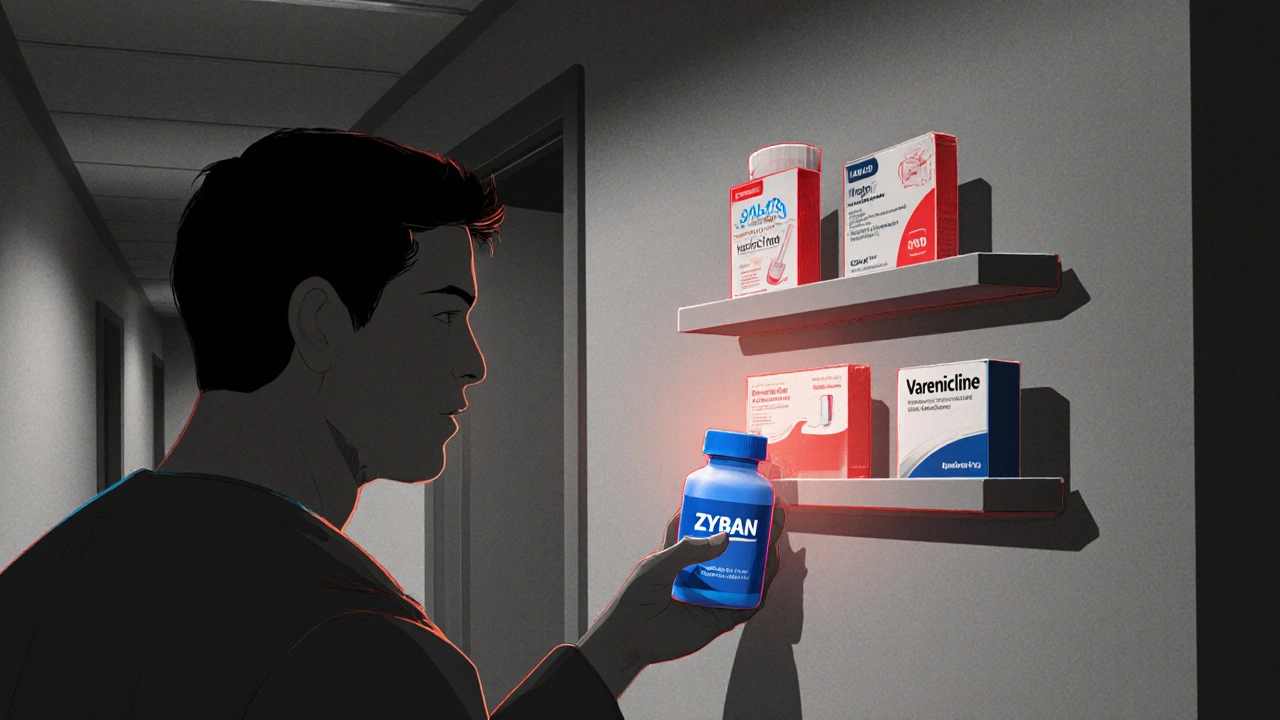Zyban: What It Is, How It Works, and Alternatives You Should Know
When you're trying to quit smoking, Zyban, a brand name for the antidepressant bupropion, used specifically to reduce nicotine cravings and withdrawal symptoms. Also known as bupropion, it doesn't contain nicotine but works by changing how your brain responds to the urge to smoke. Unlike nicotine patches or gum, Zyban doesn't replace the drug you're quitting—it helps your brain adjust so you don't miss it as much.
Zyban is often compared to other quit-smoking aids like Chantix, a prescription medication that blocks nicotine from binding to brain receptors, or over-the-counter options like nicotine gum. While Chantix targets nicotine receptors directly, Zyban boosts dopamine and norepinephrine levels, which helps ease mood swings, irritability, and anxiety that come with quitting. Many people use it alone; others combine it with behavioral support or even nicotine replacement for better results.
It’s not just for smoking. Zyban is also prescribed as an antidepressant under the name Wellbutrin, but the dose for quitting smoking is different. Side effects like dry mouth, trouble sleeping, or headaches are common but usually mild. Rarely, it can cause seizures, especially if you have a history of seizures, eating disorders, or are taking other meds that lower your seizure threshold. That’s why you need a doctor’s approval before starting.
If you’ve tried nicotine patches and still relapsed, Zyban might be your next step. It’s been used by millions since the 1990s, and studies show it more than doubles your chances of quitting compared to placebo. But it’s not magic—you still need to want to quit, and you’ll need to stick with it. Most people take it for 7 to 12 weeks, starting one to two weeks before their quit date so it builds up in their system.
People often ask if there are cheaper or newer options. Generic bupropion is just as effective as Zyban and costs far less. Newer drugs like varenicline (Chantix) have higher success rates in some trials, but they come with more serious side effect warnings. For others, behavioral counseling, mobile apps, or even acupuncture help—but none work as consistently as bupropion for people who respond to it.
What you’ll find in the posts below are real comparisons: how Zyban stacks up against other quit-smoking tools, what doctors actually recommend, how to manage side effects, and what to do if it doesn’t work for you. No fluff. Just clear, practical info from people who’ve been there and from experts who’ve studied the data. Whether you’re just thinking about quitting or stuck in a cycle of trying and failing, this collection gives you the facts you need to make a better choice.

Zyban (Bupropion) vs Alternatives: Detailed Comparison for Smoking Cessation
A side‑by‑side look at Zyban (bupropion) versus other quit‑smoking options, covering how they work, success rates, costs, and key pros and cons.
More Detail